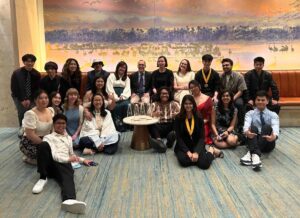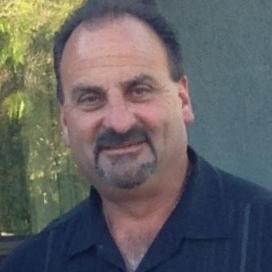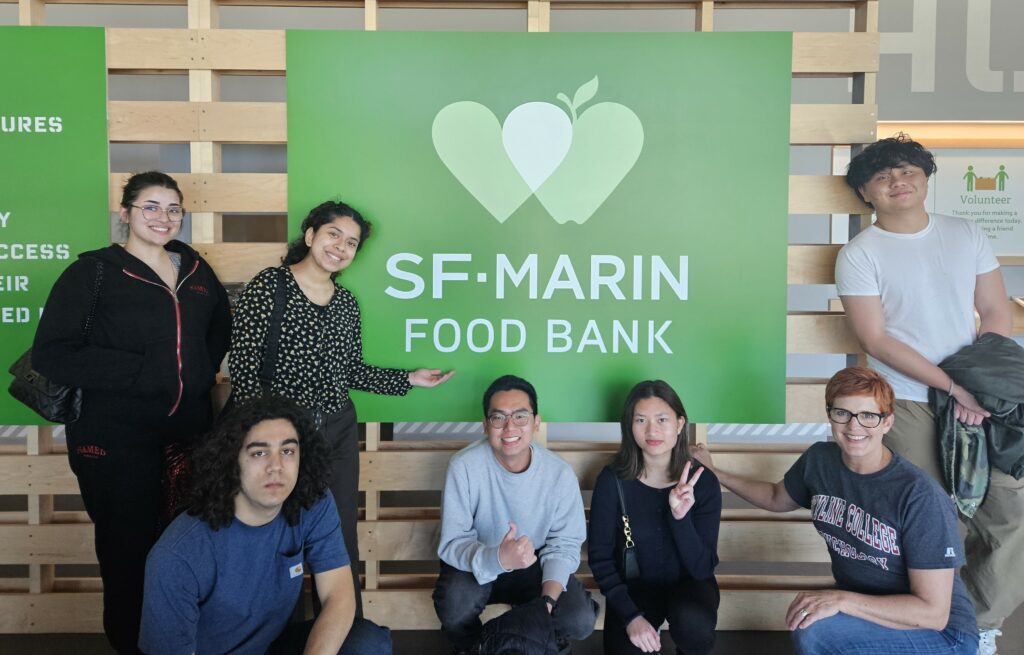
Although the Bay Area is still a bit cold in May, it cannot stop the progress of biotechnology professor Dr. Nick Kapp and students Jonathan Zhang and Azure Bell. On May 10, 2022, with Dr. Kapp as the team leader, a group of three Skyline College Biotechnology students participated in the 7th annual South San Francisco High School (SSFHS) Science Garage Poster Session.
Science Garage is part of the Genentech Futurelab science education initiative to inspire the next generation of scientists at South San Francisco Unified School District. At the high school level, students have the option to participate in a four-year biotechnology pathway. The pathway begins at 9th grade with students taking biology with a biotechnology unit. Students will then have the option to join the SSFHS Biotechnology Pathway. Both El Camino High School and South San Francisco High School have the same pathway, curriculum and equipment. This year’s Science Garage Poster Session was held in a 8000 sq. ft. biotechnology laboratory in SSFHS donated by Genentech Futurelab. All the students are welcome to use the state-of-the-art building to engage in an innovative, hands-on and minds-on curriculum.
Skyline College also has a close cooperation with SSFHS. Right now high school students taking biotechnology courses will earn Skyline College credits in Dual Enrollment. These credits will appear on their community college transcript. The final grade earned in the dual-enrolled courses will be counted towards community college GPA calculation. Students who wish to enroll in biotechnology should anticipate a college-level rigor curriculum. Additionally, students can earn college credits for free! Skyline College offers BTEC 400(2 units ,CSU transferable), BTEC 170 (3 units, CSU/UC transferable) and BTEC 171 (1 unit, CSU/UC transferable) courses for students to take.
During the Science Garage Poster Session, a total of more than a dozen groups of posters were displayed, and there were research displays in the field of microorganisms, including the impact of different phages on antibiotic screening. There were also studies in the field of biochemistry, including comparative studies of different ELISA methods for meat contamination detection, etc. Meanwhile, in the field of molecular biology, a comparative study of rapid detection methods for genetically modified foods was also presented. In all presentations, high school students can share their research content confidently and fluently. The research route was clear, including pre-hypotheses, experimental verifications, post-conclusions, and future prospects, etc. The research demonstrated the outstanding scientific research strength of contemporary high school students, a very exciting event.
The Skyline College Biotechnology students enjoyed giving back to the community and seeing where they were just a few years ago. By helping evaluate these posters the Skyline Biotechnology students can gauge how far they have come in their Biotech studies.
Article by Jonathan Zhang | Photos by Nick Kapp






